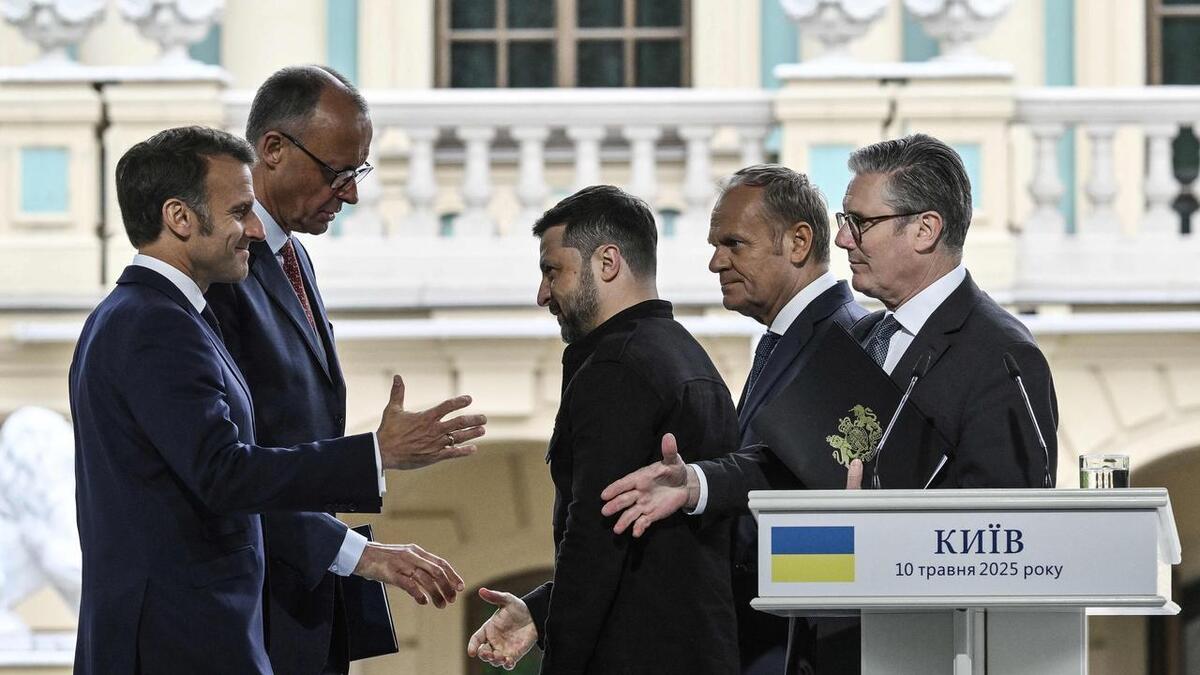
Hossein Yaari / International Affairs Expert
Although Volodymyr Zelensky holds deep grievances against NATO’s European members, for now he prefers “silence” over open protest. Much of his pent-up anger stems from unfulfilled promises that are affecting Kyiv’s economic and security equations both now and in the future. The issue goes far beyond the failure to establish a no-fly zone over Kyiv or Ukraine’s membership in NATO and the EU; it extends to bilateral economic agreements between Kyiv and Brussels as well.
The crux of the matter is that the European Union and Ukraine have recently reached a less ambitious but “realistic” trade agreement. Since 2022, trade between the two partners had been governed by a temporary emergency framework introduced after Russia’s full-scale invasion. Euronews claims the European Commission has now agreed on a new trade treaty with Ukraine to replace the current temporary agreement.
The duration of this new treaty is longer, but its provisions are more balanced. Euronews portrays this deal as “realistic”. But the real question is: Why was this dose of “realism” not offered to Zelensky and his team at the outset of the war? In clearer terms, why has “European realism” manifested not in preventing Kyiv from becoming a battlefield, but in curbing the West’s idealistic promises on trade and security relations with Ukraine?
A disaster for Ukraine, realism for Europe
The revised Deep and Comprehensive Free Trade Area (DCFTA) agreement, which forms the basis of EU-Ukraine trade relations, is seen as a “disaster” by Zelensky and his allies. The crucial factor of Ukraine’s full economic integration with Europe has been overlooked. The agreement is structured as if Ukraine were a remote island with no strategic or trade ties to Europe.
Until this new agreement, Ukraine’s trade with Europe operated under the Autonomous Trade Measures (ATM), adopted by the EU in 2022, which removed all tariffs and quotas on Ukrainian agricultural exports to the EU. This enabled Ukraine’s wartime access to European markets, especially for vital goods like grain, corn, poultry, and eggs.
From the outset, countries like Bulgaria, Hungary, Romania, and Poland argued that such measures gave Kyiv excessive economic freedom in Europe and undermined the competitiveness of Eastern European economies. Conversely, Germany and Italy insisted this was the bare minimum owed to Kyiv for serving as NATO’s pawn against Russia.
Now, however, the new agreement is not built on “Ukraine’s unilateral economic privilege” but revolves around a “balanced calculation of mutual benefit and loss for both Ukraine and Europe.” This comes even though the war in Ukraine rages on, with no foreseeable end in sight.
Balance instead of privilege!
The repeated use of terms like “realistic balance” in structuring Ukraine-Europe economic relations has enraged Zelensky and his team. In this new equation, Ukraine is no longer seen as “Europe’s dependent player” but merely as “one party in a trade deal.”
Under such an agreement, zero-tariff exports for Ukrainian goods are no longer casually granted. European farmers, especially, had protested vehemently against the surge of Ukrainian agricultural imports after trade barriers were lifted — and now their protests have been heard louder than Zelensky’s cries.
Ursula von der Leyen’s empty words
Ursula von der Leyen, President of the European Commission, upon announcing the agreement said: “Ukraine’s place is within the family. We remain committed to a path of mutual growth and stability; a path that leads to Ukraine’s full integration into our Union.”
Von der Leyen once again speaks of Ukraine’s “integration into the European community.” This promise has been repeatedly dangled before Kyiv’s leaders both before and after the war’s outbreak — to the point where Zelensky believed Ukraine’s NATO and EU memberships would be announced within the first week of the war.
But today, Ukraine holds no position in Europe’s security architecture and no seat in its political-economic constellation. At best, Europe envisions Ukraine as a “priority partner” within its framework. One key clause in the recent agreement with Brussels focuses on “protecting the trade interests of EU member states.” Accordingly, strong safeguard mechanisms will be introduced to protect EU markets, especially when Ukrainian exports threaten to disrupt European or national economies.
The priority of this agreement is “maintaining the stability of European markets,” not protecting Ukraine’s war-stricken economy. The concept of “mutual benefit” doesn’t really apply here, as securing European economic interests (especially in agriculture) naturally means reducing Ukraine’s export potential. Consequently, Kyiv will soon witness a reduction in its export quotas to Europe. The European Commission believes this move will create more opportunities for EU farmers, particularly in countries bordering Ukraine.
The Ukrainian government has no choice but to accept this agreement — otherwise, it will lose its remaining commercial resilience during the war. Both sides are now finalizing the technical aspects of the agreement. The European Commission will present this agreement to EU member states and the European Parliament in the coming days. Its final approval will surely bring satisfaction to European governments, but there will be no such satisfaction on the faces of war-torn Ukrainians.